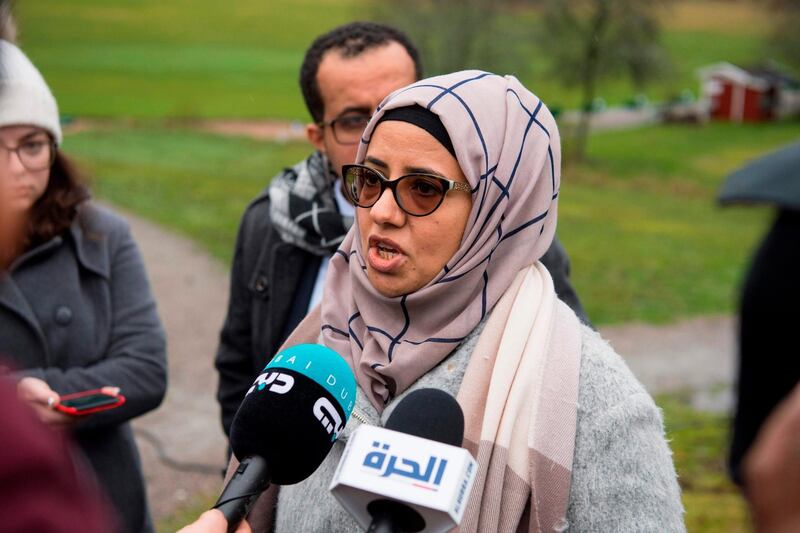It is widely acknowledged that women in Yemen are disproportionally affected by the conflict, but in this week’s UN-backed talks, only one Yemeni woman took part directly in negotiations that ultimately aim to bring rival parties closer to achieving peace.
"Women suffer greatly from the aftermaths of war," Rana Ghanem, assistant secretary of Yemen's Nasser organisation and member of the government delegation, told The National on the sidelines of talks in the rural Swedish town of Rimbo.
“As the only woman among the delegates, I feel that I have to carry a lot of responsibilities including the status and situation of Yemeni women,” she said.
_______________
Read more:
Yemeni women seek greater role in peace talks
[ Yemen talks: warring parties agree on Hodeidah ceasefire, UN says ]
[ Yemen's warring parties appear together for first time since 2015 ]
_______________
Yemeni women are among those hit hardest by a conflict that has produced the world’s worst humanitarian disaster and has killed thousands of civilians. Beyond suffering from malnutrition and dwindling health conditions, Yemeni women are also disproportionately affected by rape and other forms of sexual violence that tend to increase during war.
Ms Ghanem said that the impact of war on women is often overlooked, noting that a growing number of women are losing husbands, fathers, siblings and other relatives due to fighting.
“If there were more women in the delegation this would have alleviated pressures (on me)” she said, explaining that she feels like the burden of representing women’s issue fell solely on her.
Recent studies have shown that the inclusion of women in peace processes is essential to establishing lasting peace. A study from the Council on Foreign Relations found that including women in negotiations makes the agreement 64 per cent less likely to fail. The same report showed that women’s participation in peace processes makes long-term agreements 35 per cent more likely to last for at least 15 years.
In an attempt to remedy the problem of weak female representation in this week’s Yemen talks, the UN envoy to Yemen, Martin Griffiths, invited a group of eight women to assist him during negotiations to set a framework for ending the crisis.
The Yemeni Women’s Technical Advisory represents different political parties, civil society, activists and development workers in Yemen.
The female advisory team did not engage directly in negotiations but they held meetings with the rival parties as well as members of the diplomatic community and the Foreign Minister of Sweden, the UN envoy’s office said in a statement on Wednesday.
“[They] discussed possible ways of bringing the voices of Yemeni women to the peace-making process. The Group has also engaged in presenting strategy papers and proposals that guide the Special Envoy in his mediation role to bring the war to an end,” the statement said.
Ms Ghanem said that among the leading concerns for Yemen’s women is to identify the fate of those who had gone missing and secure the return of captives and prisoners.
She also said that female activists are very concerned about women’s participation in peace talks. Previous dialogue sessions have secured thirty per cent representation for women in peace negotiations, but that has yet to materialize.
Ms Ghanem said that increased female participation is a leading demand.
Many activists accuse Yemen’s male politicians of not believing in the competence and capabilities of women and they say that these male politicians are unaware of the importance of female participation in the peace process.
“Today these women activists release statements everywhere and in Taez, they are contributing to achieving reconciliation,” Ms Ghanem said, lauding their efforts.
UN-backed talks in Sweden closed on Thursday, with warring parties agreeing on a ceasefire deal for Hodeidah. This comes after rivals also agreed on a prisoner swap deal. The next round of talks is scheduled for January.





